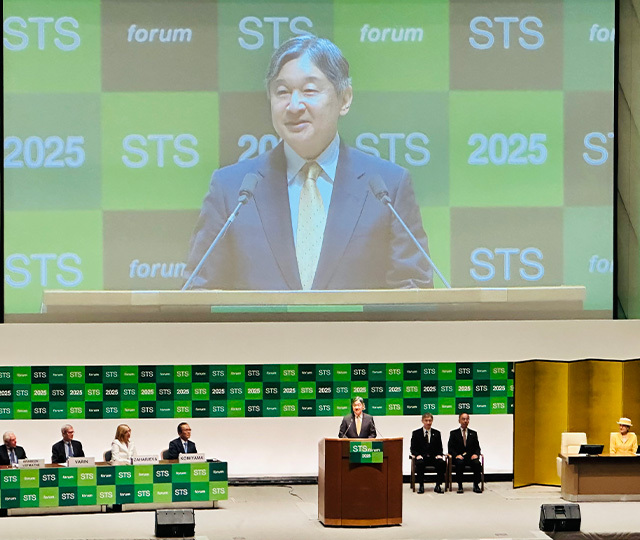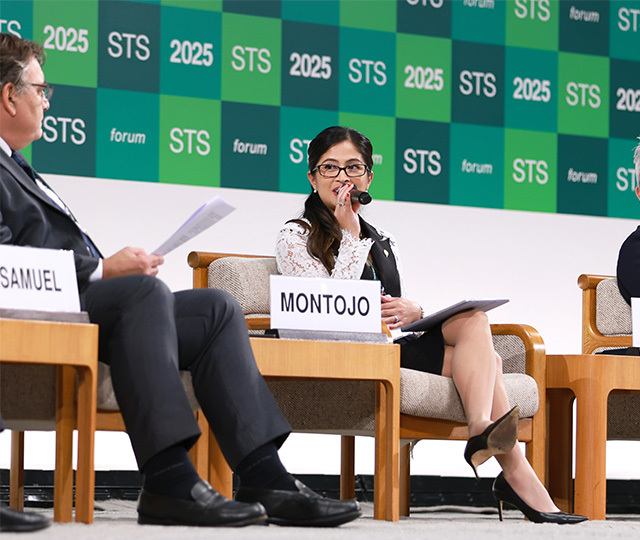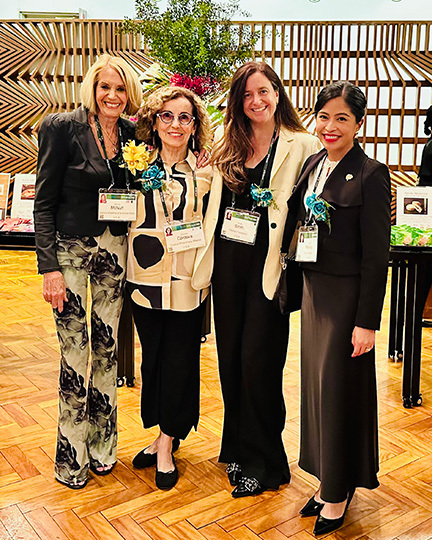President's Perspective
The Lights and Shadows of Science and Technology

I recently returned from a stimulating week at Kyoto, Japan’s 22nd annual Science and Technology in Society (STS) Forum, an international convening that started more than 20 years ago in 1994. The meeting was founded by Koji Omi, then Minister of State for Science and Technology Policy in Japan, recognizing that advances in science and technology hold great promise for society but also raise important issues—the “lights and shadows of science and technology,” as Omi described.
This year, leaders from many disciplines and nations gathered to envision global science and technology in 2030 and beyond, with a special focus on artificial intelligence (AI) and its future in healthcare, business, government, and broader society. We were even joined by Emperor Naruhito and Empress Masako of Japan, with the Emperor speaking about the importance of continued global discussion on science and technology to shape the future of humankind.
The STS Forum’s founding mission—to ensure that ethical and societal considerations evolve alongside scientific progress—is strongly aligned with our mission at the Dana Foundation to advance neuroscience for the benefit of society. Similarly, STS is also committed to nurturing the next generation of science and technology leaders, and I was delighted to engage with many of these inspiring early career scholars and practitioners throughout the conference.


Emperor Naruhito also acknowledged the challenging issues related to AI that “require careful, thoughtful deliberation.”
I felt deeply honored to participate in a panel dialogue centered on brain science and the implications of emerging neurotechnology. From brain–computer interfaces to diagnostics enabled by AI, advancements in this field are opening extraordinary potential to restore lost abilities, improve mental health, and expand understanding of human cognition. They’re also testing the bounds of ethical frameworks and approaches.
In my remarks, I highlighted key examples that demonstrate both the promise and complexity of this moment: Deep brain stimulation, first developed to treat Parkinson’s disease, is now being used to address depression, obsessive-compulsive disorder, and other conditions that were once considered treatment-resistant. The BrainGate2 consortium recently reported a striking breakthrough: an implanted brain device that allowed individuals with ALS to communicate by decoding their imagined, or “inner,” speech in real time. Meanwhile, the Cleveland Clinic and a startup company, Piramidal, are developing an AI model trained on brainwave data to monitor intensive care patients—a development I recently commented on for WIRED magazine. Together, these advances show how far the field has come and how quickly the frontier is moving.


I shared with the audience that, with such progress comes great excitement and expanded human potential. It also introduces questions about autonomy, privacy, legality, and fairness that reach far beyond the laboratory. Brain data are uniquely intimate, revealing aspects of thought, emotion, decision-making and mood that have never before been accessible. How will this data be stored, shared, and protected? How do we determine agency or consent? Who decides?
This prompted an exciting Q&A session with the audience about the potential risks, benefits, uses, and misuses of emerging neurotechnology, and attendees expressed how they felt about the role of neurotechnology in their lives. Several participants shared with me after the panel that the dialogue helped them to more deeply consider how to integrate discussions on ethics and society into their national or regional science initiatives.
Convenings such as the STS Forum help build bridges across borders and disciplines to strengthen science’s positive impact in the world. While at the Dana Foundation, we provide support for catalytic work rooted concretely in communities through programs like the Dana Center Initiative for Neuroscience & Society or Brain Awareness Week, and our aim is to inspire others around the world to expand and deepen the societal benefits of science through their own initiatives.


From left: Marcia McNutt, NASEM; France Cordova, Science Philanthropy Alliance; Brooke Smith, The Kavli Foundation; Caroline Montojo, Dana Foundation.
